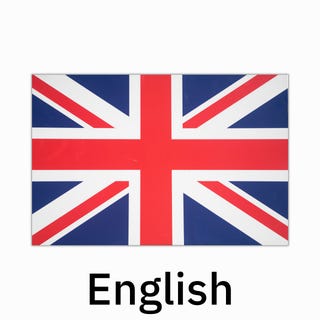Did you think that there were only 10 super-complicated words to pronounce in English? Oh no, the list doesn’t end there! In fact, it goes on and on… Well, in this article, it goes up to 252 of the hardest English words to pronounce and spell. Let’s dive in.
English | Pronunciation | IPA | Meaning |
|---|
| Aberrant | uh-BER-uhnt | / æˈberənt / | Deviating from the norm or typical behavior. |
| Accede | uhk-seed | / əkˈsiːd / | To consent, give approval; yield to another’s wishes. |
| Accessory | uhk-ses-uh-ree | / əkˈsesəri / | Small thing you wear with clothes to add style. |
| Adamant | AD-uh-muhnt | / ˈædəmənt / | Firmly refusing to change one's mind. |
| Adumbrate | ad-UHM-breyt | / ˈædəmbreɪt / | To give a vague or sketchy outline of. |
| Agoraphobia | uh-gaw-ruh-foh-bee-uh | / ˌæɡərəˈfəʊbiə / | A fear of places or situations that you can't escape from; fear of open spaces. |
| Albeit | all-BEE-it | / ɒlˈbiːət / | Despite the fact that. |
| Alias | ay-lee-uhs | / ˈeɪliəs / | An assumed name taken on temporarily, sometimes by a criminal or fugitive. |
| Almond | AL-muhnd | / ˈɑːmənd / | A small, oval. |
| Anathema | uh-nath-uh-muh | / əˈnæθəmə / | Something or someone that one vehemently dislikes. |
| Anemone | uh-nem-uh-nee | / əˈneməni / | Small plant. |
| Anesthetist | uh-neth-uh-tist | / əˈniːsθətɪst / | An anesthesiologist. |
| Aneurysm | uh-nur-izm | / ˈænjəˌrɪzəm / | Excessive localized swelling of the wall of an artery. |
| Antarctic | ant-aark-tik | / ænˈtɑːktɪk / | Extremely cold region in the Southern part of the world. |
| Anthropomorphism | an-thruh-puh-mawr-fiz-uhm | / ˌænθrəʊpəʊˈmɔːfˌɪzəm / | The attribution of human characteristics or behavior to a god, animal, or object. |
| Antidisestablishmentarianism | an-teye-dis-es-tab-lish-muhnt-air-ee-uh-niz-uhm | / ˌæntidɪsəˌstæbləʃmənˈteriənɪzəm / | Opposition to the disestablishment of the Church of England. |
| Apocryphal | uh-PAHK-ruh-fuhl | / əˈpɑːkrəfl̩ / | Of doubtful authenticity. |
| Archetype | AHR-kih-t | / ˈɑːrkəˌtaɪp / | A very typical example of something. |
| Archipelago | AHR-kih-pel-uh-goh | / ˌɑːrkəˈpeləˌɡoʊ / | A group of islands. |
| Ascetic | ass-et-ick | / əˈsetɪk / | A person who practices extreme self-discipline. |
| Asterisk | ay-stuh-risk | / ˈæstərɪsk / | The symbol: * |
| Athlete | ATH-leet | / ˈæθˌlit / | A person who is skilled in sports or other physical activities. |
| Bacteriology | bak-teer-ee-awl-uh-jee | / bækˌtɪəriˈɒlədʒi / | The study of bacteria. |
| Beguile | bee-gyle | / bɪˈɡaɪl / | To deceive or cheat someone. |
| Blasphemy | blas-fuh-mee | / ˈblæsfəmi / | Speaking sacrilegiously about God or sacred things. |
| Bouquet | boo-KAY | / buːˈkeɪ / | A bunch of flowers. |
| Bourbon | BER-buhn | / ˈbɝːbən / | A type of whiskey made primarily from corn. |
| Brewery | BREW-uh-ree | / ˈbruːəri / | A place where beer is produced. |
| Broccoli | BROK-uh-lee | / ˈbrɑːkəli / | A green vegetable with a tree-like shape. |
| Buoy | boy | / ˈbuːi / | A floating device used to mark a location or to indicate a navigational hazard. |
| Bureaucracy | byoo-rok-ruh-see | / bjʊəˈrɒkrəsi / | Excessively complex administrative procedures. |
| Bury | BER-ee | / ˈberi / | To put underground, typically in the earth. |
| Cacciatore | kuh-chuh-tawr-ee | / katʃəˈtɔːi / | Prepared in a spicy tomato sauce with mushrooms and herbs. |
| Cache | kash | / ˈkæʃ / | A hiding place for storing away goods. |
| Cacophony | kuh-kof-uh-nee | / kæˈkɒfəni / | Unpleasant mixture of sounds. |
| Cajole | kuh-johl | / kəˈdʒoʊl / | To persuade someone to do something by being very friendly. |
| Callous | kal-us | / ˈkæləs / | Showing no emotion or sympathy; insensitive. |
| Camaraderie | kam-ruh-duh-ree | / ˌkæməˈrɑːdəri / | Easy familiarity and friendship, often built over time. |
| Candidate | KAND-uh-deyt | / ˈkændədet / | A person seeking an office or position. |
| Caramel | kar-uh-mel | / ˈkerəməl / | A sweet, golden brown confectionery made by heating sugar. |
| Caricature | kuh-RIK-uh-cher | / ˈkerəkətʃər / | A representation that exaggerates the characteristic features. |
| Cavalry | KAV-uhl-ree | / ˈkævəlri / | Soldiers trained to fight on horseback. |
| Chaos | KAY-ahs | / ˈkeɪas / | Complete disorder and confusion. |
| Charcuterie | shahr-koo-tuh-REE | / charcuterie / | The branch of cooking devoted to prepared meat products. |
| Chauvinism | shoh-vuh-niz-uhm | / ˈʃoʊvɪnɪzəm / | Excessive patriotism, a belief in the superiority of one's own gender. |
| Chimpanzee | chimp-uhn-zee | / ˌtʃɪmpænˈziː / | A type of monkey. |
| Chipotle | chi-poat-lee | /tʃɪˈpɒtleɪ,tʃɪˈpɒtli,tʃɪˈpəʊtleɪ,tʃɪˈpəʊtli/ | Smoked and dried chili pepper. |
| Choir | kwahy-er | / ˈkwaɪər / | A group of singers who perform together. |
| Clothes | klohz | / kloʊðz / | Articles of clothing you wear. |
| Cocoa | koh-KOH | / ˈkokoʊ / | A powder made from ground roasted cocoa beans. |
| Colloquialism | kuh-loh-kwee-uh-liz-uhm | / kəˈləʊkwɪəlɪzəm / | A word, phrase, or expression that is conversational rather than formal. |
| Colonel | ker-nuhl | / ˈkɜːnl̩ / | High ranking officer in the military. |
| Comfortable | kum-fuhr-tuh-buhl | / ˈkʌmftəbl̩ / | Feeling relaxed. |
| Connecticut | kon-uh-NEHK-ut | / kəˈnetɪkət / | A state in the United States. |
| Connoisseur | kon-uh-ser | / ˌkɒnəˈsɜː / | Someone who knows a lot about a particular thing. |
| Conscience | kon-shuhns | / ˈkɒnʃəns / | A person’s moral sense of right or wrong. |
| Coup | koo | / ˈkuː / | A sudden seizure of power from a government. |
| Cryptography | krip-taw-gree-fee | / krɪpˈtɒɡrəfi / | Writing or solving codes. |
| Curmudgeon | kur-muhj-uhn | / kɜːˈmʌdʒən / | Someone who gets annoyed easily. |
| Cyanosis | sy-uh-noh-sis | / ˌsaɪəˈnəʊsɪs / | A bluish discoloration of the skin due to poor circulation. |
| Cytology | sy-taw-luh-jee | / saɪˈtɒlədʒi / | Science concerned with the structure and function of plant and animal cells. |
| Data | day-tuh | / ˈdeɪtə / | Information used for making calculations. |
| Debauch | di-bawch | / dɪˈbɔːtʃ / | To lead away from virtue; to corrupt morally . |
| Debris | DEB-ree | / dəˈbriː / | The remains of something that has been destroyed. |
| Debut | dey-BYOO | / ˈdeɪbjuː / | The first public performance. |
| Decrepit | dih-KREP-it | / dəˈkrepət / | In a very poor condition as a result of age. |
| Defibrillator | dih-FIB-ri-ley-ter | / diˈfɪbrəˌletər / | A medical device that uses electric shock to restart a person's heart. |
| Demagogue | dem-uh-gog | / ˈdeməɡɒɡ / | A political leader who seeks support by appealing to the desires and prejudices of ordinary people rather than by using rational argument. |
| Dengue | DEN-gyoo | / ˈdenɡ / | A viral disease spread by mosquitoes. |
| Deteriorate | dih-TEER-ee-uh-rayt | / dəˈtɪriəˌret / | To become worse in quality or condition. |
| Diaphanous | dy-uh-fuh-nuhs | / daɪˈæfənəs / | Light, delicate, and translucent. |
| Diaphragm | dy-uh-fram | / ˈdaɪəfræm / | An organ for breathing between separation the thorax from the abdomen. |
| Dilate | DY-layt | / daɪˈleɪt / | To make wider or larger. |
| Drawer | draw-er | / drɔː / | Furniture components that slide in and out. |
| Elite | eh-LEET | / əˈliːt / | A group of people of high status. |
| Emollient | i-mawl-yuhnt | / iˈmɒliənt / | Making smoother or less harsh. |
| Entrepreneur | on-truh-pruh-nur | / ˌɒntrəprəˈnɜː / | Someone who owns their own business. |
| Ephemeral | i-fem-uh-rul | / ɪˈfemərəl / | Lasting for a short time. |
| Epistemology | ep-uh-stem-awl-uh-jee | / ɪˌpɪstəˈmɒlədʒi / | A theory of knowledge. |
| Epitome | ep-uh-taw-mee | / ɪˈpɪtəmi / | A person or thing that is a perfect example of a particular quality or type. |
| Equanimity | ee-kwuh-nim-uh-tee | / ˌikwəˈnɪməti / | Calmness and composure. |
| Equivocal | ih-KWIV-uh-kuhl | / ɪˈkwɪvəkl̩ / | Open to more than one interpretation. |
| Erinaceous | ehr-uh-nay-shuhs | /ˌɛrɪˈneɪʃəs/ | Relating to a hedgehog. |
| Espouse | i-spowz | / ɪˈspaʊz / | To follow or support an idea or theory as a cause. |
| Espresso | i-spres-oh | / eˈspresəʊ / | A small Italian coffee. |
| Etcetera | et-suh-TEHR-uh | / etˈsetərə / | Expression used to enumerate something. |
| Eulogy | YOO-luh-jee | / ˈjuːlədʒi / | A speech or written tribute in honor of a deceased person. |
| Euouae | yoo-oh-wee | / euouae / | A mnemonic used to recall the sequence of tones in a particular passage of the Gloria Patri. |
| Euthanasia | yoo-thuh-nay-zhuh | / ˌjuːθəˈneɪzɪə / | The painless killing of a patient suffering from an incurable and painful disease. |
| Expatiate | iks-pay-shee-ayt | / ɪkˈspeɪʃɪeɪt / | To talk or write in great detail about. |
| Fatuous | fach-oos | / ˈfætʃʊəs / | Foolish, inane; devoid of intelligence. |
| Faux pas | foh PAH | / ˌfoʊ ˈpɑ: / | A socially unacceptable mistake. |
| February | feb-roo-air-ee | / ˈfebjʊəri / | The second month of the year. |
| Film | film | / ˈfɪlm / | A movie or a series. |
| Fiscal | FIS-kuhl | / ˈfɪskl̩ / | Relating to government revenue, especially taxes. |
| Floccinaucinihilipilification | flok-suh-naw-suh-ny-hil-uh-pil-uh-fi-kay-shun | /ˌflɒksɪnɔːsɪˌnɪhɪlɪˌpɪlɪfɪˈkeɪʃn/ | The action or habit of estimating something as worthless. |
| Foliage | FOH-lee-ij | / ˈfoʊliɪdʒ / | Leaves of a plant. |
| Foyer | FOY-yer | / ˈfɔɪər / | An entrance hall or lobby. |
| Fuchsia | fyoo-shuh | / ˈfjuːʃə / | A bright pink color or a type of flower. |
| Gauge | gayj | / ˈɡeɪdʒ / | A device for measuring the amount, level, or pressure of something. |
| Genre | ZHAHN-ruh | / ˈʒɑːnrə / | A category of artistic, musical, or literary composition. |
| Gibberish | jib-uh-rish | / ˈdʒɪbərɪʃ / | Senseless talk. |
| GIF | jif | / gif / | A type of animated image. |
| Gourmet | goor-may | / ˈɡʊəmeɪ / | A connoisseur of good food. |
| Grandiloquent | gran-dil-uh-kwuhnt | / ɡrænˈdɪləkwənt / | Extravagant, lofty, or bombastic in style or manner. |
| Hegemony | hi-jem-uh-nee | / hɪˈɡeməni / | Authority, leadership, or influence by a dominant social group. |
| Heinous | HAY-nuhs | / ˈheɪnəs / | Extremely wicked or cruel; evil. |
| Heir | er | / ˈer / | A person who inherits something. |
| Herb | herb | / ˈɝːb / | A plant used for culinary purposes. |
| Heresy | HEHR-uh-see | / ˈherəsi / | A belief that is at odds with established religious doctrine. |
| Hernia | her-nee-uh | / ˈhɜːnɪə / | A condition in which part of an organ is displaced and protrudes through the wall of the cavity containing it. |
| Hierarchy | HAHY-er-ahr-kee | / ˈhaɪəˌrɑːrki / | A system in which people or things are arranged in order of rank or importance. |
| Hors d'oeuvres | or-durv | / ˌɔ: ˈdɜ:v / | Elegant word for starters, loanword from French. |
| Ignominious | ig-nuh-min-ee-uhs | / ˌɪɡnəˈmɪnɪəs / | Very embarrassing. |
| Illinois | il-uh-noy | / ˌɪlə,ˈnɔɪ / | A state in the USA. |
| Inchoate | in-koh-it | / ɪnˈkəʊɪt / | Only partly in existence; partially formed, as in an idea. |
| Infamous | in-FAM-uhs | / ˈɪnfəməs / | Well known for some bad quality or deed. |
| Ingenuity | in-JEN-yoo-uh-tee | / ˌɪndʒəˈnuːəti / | The ability to think of new ideas. |
| Interpret | in-ter-PRIT | / ˌɪnˈtɝːprət / | To explain or give the meaning of something. |
| Ischaemia | is-kee-mee-uh | / ischaemia / | An inadequate blood supply to an organ or part of the body. |
| Island | AYL-land | / ˈaɪlənd / | A piece of land surrounded by water. |
| Isthmus | IZ-muhs | / ˈɪsməs / | A narrow strip of land connecting two larger land masses. |
| Itinerary | ahy-tuh-NAIR-ee | / aɪˈtɪnəˌreri / | A plan of a journey. |
| Jalapeño | ha-luh-peyn-yo | /haləˈpeɪn(j)əʊ,haləˈpiːnəʊ/ | Small green or red pepper. |
| Jaundice | jawn-dis | / ˈdʒɔːndɪs / | The yellowing of the skin, or an adjective meaning bitterness, resentment, or cynicism. |
| Jewelry | JOO-luh-ree | / ˈdʒuːəlri / | Ornaments people wear for adornment. |
| Juror | JOOR-er | / ˈdʒʊrər / | A person selected to serve on a jury. |
| Kaleidoscopic | kuh-leye-duh-skawp-ik | / kəˌlaɪdəˈskɒpɪk / | Having complex patterns of colors. |
| Knead | need | / ˈniːd / | To work and press with the hands. |
| Knee | knee | / ˈniː / | The joint connecting the thigh and the lower leg. |
| Knell | nell | / ˈnel / | The sound of a bell, especially when rung solemnly for a death or funeral. |
| Lackadaisical | lak-uh-day-zee-kul | / ˌlækəˈdeɪzɪkl̩ / | Doing something in a lazy way. |
| Leicester Square | les-tuhr skweir | / ˈlestər ˈskwer / | A square in London. |
| Liable | LY-uh-buhl | / ˈlaɪəbl̩ / | Legally responsible. |
| Liaison | lee-AY-zawn | / liˈeɪˌzɑːn / | A link or connection between people or organizations. |
| Library | LAHY-brer-ee | / ˈlaɪbreri / | A collection of books. |
| Licentious | lahy-SEN-chuhs | / laɪˈsentʃəs / | Lacking moral restraint. |
| Lingerie | lan-zhuh-REE | / ˈlɑːnʒəˌre / | Women's underwear. |
| Maelstrom | meyl-strahm | / ˈmeɪlstrəm / | A powerful whirlpool in the sea or a river. |
| Massachusetts | mas-uh-CHOOS-its | / ˌmæsəˈtʃuːsəts / | A state in the United States. |
| Mastectomy | mas-tek-tuh-mee | / mæˈstektəmi / | Operation to remove a woman’s breast. |
| Mauve | mov | / moʊv / | A pale purple color name. |
| Medieval | mid-EE-vuhl | / məˈdiːvl̩ / | Relating to the Middle Ages. |
| Meme | meem | / meme / | A funny image in the internet. |
| Metamorphosis | meh-tuh-mawr-fuh-sis | / ˌmetəˈmɔːrfəsəs / | A change of the form or nature of a thing or person into a completely different one. |
| Miniature | MIN-ee-cher | / ˈmɪniəˌtʃʊr / | A small-scale model of something. |
| Mischievous | mis-chuh-vuhs | / ˈmɪstʃəvəs / | Person who enjoys causing trouble for fun. |
| Misogynist | muh-saj-uh-nist | / mysoginist / | Person who hates women. |
| Monk | monk | / ˈməŋk / | A person who lives in a monastery or convent. |
| Moot | moot | / ˈmuːt / | Open to discussion; debatable. |
| Muscle | mus-ul | / ˈmʌsl̩ / | A body tissue composed of cells or fibers. |
| Mustache | Muh-STASH | / ˈməˌstæʃ / | Hair growing on the upper lip. |
| Nadir | nay-der | / ˈneɪdər / | The lowest point. |
| Narcissistic | nahr-suh-SIS-tik | / ˌnɑːrsəˈsɪstɪk / | Having an excessive interest in oneself. |
| Neophyte | nee-uh-fyt | / ˈniːəˌfaɪt / | A beginner, a new participant. |
| Niche | neesh | / ˈnɪtʃ / | A specialized segment of the market for a particular kind of product or service. |
| Nihilism | nahy-uh-liz-uhm | / ˈnaɪəˌlɪzəm / | The belief that nothing in the world has a real existence. |
| Noisome | noy-suhm | / ˈnɔɪsəm / | Disgusting, as in odor; capable of causing nausea. |
| Nuclear | nyoo-klee-er | / ˈnuːkliər / | Type of powerful energy. |
| Nuptial | nup-shuhl | / ˈnʌptʃl̩ / | Concerning marriage. |
| Obdurate | AHB-doo-rayt | / ˈɒbdjʊərət / | Stubbornly refusing to change one's mind. |
| Occasion | uh-KAY-zhuhn | / əˈkeɪʒn̩ / | An opportunity for a particular event. |
| Often | OF-tuhn | / ˈɔːfn̩ / | Many times; frequently. |
| Oligarchy | aw-lij-aar-kee | / ˈɑːləˌɡɑːrki / | A small group of people having control of a country or organization. |
| Onomatopoeia | on-uh-mat-uh-pee-uh | / ɑːnəˈmɑːtəpiə / | Words that sound like the thing they refer to. |
| Ophthalmology | of-thal-mawl-uh-jee | / ˌɑːpθəˈmɑːlədʒi / | The branch of medicine concerned with the diagnosis and treatment of disorders of the eye. |
| Ordinance | OR-dn-uhns | / ˈɔːrdənəns / | A law or regulation made by a local government. |
| Otorhinolaryngology | otor-hino-lar-ing-ol-uh-gee | /ˌəʊtəʊˌrʌɪnəʊˌlarɪŋˈɡɒlədʒi/ | The study of diseases of the ear, nose, and throat. |
| Panacea | pan-uh-see-uh | / ˌpænəˈsiːə / | A remedy for all illness or solution for all problems. |
| Paradigm | PAR-uh-dahym | / ˈperəˌdaɪm / | A typical example or pattern. |
| Pauciloquy | paw-suh-loh-kwee | / pauciloquy / | Brevity in speech. |
| Pejorative | pee-juh-rut-iv | / pəˈdʒɔːrətɪv / | Expressing disapproval or belittling. |
| Penguin | PEN-gwuhn | / ˈpeŋɡwən / | A flightless bird that lives in cold regions near the poles. |
| Peremptory | per-em-tuh-ree | / pəˈremptəri / | Speaking or behaving rudely. |
| Phenomenon | fuh-NAHM-uh-nawn | / fəˈnɑːməˌnɑːn / | An extraordinary event or occurrence. |
| Phlegm | FLEM | / fləm / | Thick mucus produced in the respiratory system. |
| Phlegmatic | fleg-mat-ik | / fləgˈmætɪk / | Slow to react, not showing emotion; calm and composed. |
| Picture | PIK-cher | / ˈpɪktʃər / | An image. |
| Pizza | PEE-tsuh | / ˈpiːtsə / | A dish of Italian origin. |
| Plumber | PLUHM-er | / ˈplʌmər / | A person who repairs pipes. |
| Pneumatology | new-muh-taw-luh-jee | /ˌnjuːməˈtɒlədʒi/ | The study of spirits or spiritual beings. |
| Pneumonia | nyoo-moh-nee-uh | / nuˈmoʊniə / | Lung inflammation caused by bacterial or viral infection. |
| Prelude | PREL-yood | / ˈpreɪˌluːd / | A piece of music that serves as an introduction to the main part. |
| Prerogative | pri-RAHG-uh-tiv | / prɪˈrɑːɡətɪv / | A right or privilege exclusive to a particular individual or class. |
| Prescription | pri-skrip-shun | / prəˈskrɪpʃn̩ / | The action of prescribing a medicine or treatment. |
| Prevaricate | pri-VAIR-uh-kayt | / prɪˈværɪkeɪt / | To speak or act in an evasive way. |
| Probably | PRAH-buh-blee | / ˈprɑːbəbli / | With a high likelihood; very likely. |
| Pronunciation | pro-nun-see-ay-shun | / proˌnənsiˈeɪʃn̩ / | The way you say a word. |
| Prostrate | PRAHS-trayt | / ˈprɑːstret / | Lying face down on the ground. |
| Pseudonym | SOO-duh-nim | / ˈsuːdəˌnɪm / | A fictitious name, especially one used by an author. |
| Puerile | pyoor-ahyl | / pjuːˈriːl / | Relating to a child or childhood; immature, foolish. |
| Pulchritude | pul-kruh-tood | / ˈpʌlkrɪtjuːd / | Physical beauty. |
| Quagmire | kwag-myr | / ˈkwægˌmaɪər / | A soft boggy area of land that gives way underfoot. |
| Quay | key | / ˈkiː / | A place around water for loading and unloading ships. |
| Queue | kyoo | / ˈkjuː / | A line of people or vehicles waiting for something. |
| Quiche | keesh | / ˈkiːʃ / | A baked flan or tart with a savoury filling thickened with eggs. |
| Quinoa | kee-noh-uh | /ˈkiːnwɑː/ | A plant whose seeds we eat. |
| Quintessential | kwin-tuh-sen-shuhl | / ˌkwɪntəˈsenʃəl / | Representing the most perfect or typical example of a quality or class. |
| Quirky | kur-kee | / ˈkwɝːki / | Having or characterized by peculiar or unexpected traits or aspects. |
| Quixotic | kwik-sah-tik | / kwɪkˈsɑːtɪk / | Extremely idealistic; unrealistic and impractical. |
| Quotidian | kwoh-tid-ee-un | / kwoʊˈtɪdɪən / | Occurring or recurring daily, commonplace. |
| Raccoon | rak-kun | / ræˈkuːn / | A greyish brown American mammal. |
| Raspberry | RAZ-ber-ee | / ˈræzˌberi / | A soft fruit resembling a red or blackberry. |
| Receipt | ree-seet | / rəˈsiːt / | A document acknowledging something. |
| Regime | ruh-ZHEEM | / rəˈʒiːm / | A government or system of rule. |
| Remuneration | ri-myoo-nuh-RAY-shun | / rəˌmjuːnəˈreɪʃn̩ / | Payment or compensation for a service or work. |
| Rendezvous | RON-duh-voo | / ˈrɑːndɪˌvuː / | A meeting or appointment, especially a romantic one. |
| Restaurateur | res-tuh-rer-uh-tuhr | / ˌrestərəˈtɝː / | Someone who owns a restaurant. |
| Rhythm | RITH-uhm | / ˈrɪðəm / | A pattern of sounds or beats established in music. |
| Salmon | sam-un | / ˈsæmən / | A type of fish we eat. |
| Sanguine | san-gwin | / ˈsæŋˌɡwɪn / | Cheerful, hopeful, confident, especially in a bad situation. |
| Scapula | skap-yuh-luh | / ˈskæpjələ / | Shoulder blade. |
| Schadenfreude | shah-dn-froid | /ˈʃɑːd(ə)nˌfrɔɪdə/ | Pleasure derived by someone from another person's misfortune. |
| Schedule | SKED-yool | / ˈskedʒuːl / | A plan. |
| Scissors | SI-zuhrz | / ˈsɪzərz / | A cutting instrument with two blades. |
| Sesquipedalian | ses-kwi-pi-day-lee-un | / ˌseskwɪpɪˈdeɪlɪən / | Using a lot of long words. |
| Sherbet | sher-bit | / ˈʃɝːbət / | Ice-cream like food. |
| Silicon | SIL-uh-kahn | / ˈsɪləkən / | A nonmetallic element with the atomic number 14. |
| Specifiable | speh-SIHF-uh-buhl | / ˌspesɪˈfaɪəbl̩ / | Able to be specified. |
| Specific | spuh-SIHF-ik | / spəˈsɪfɪk / | Particular or distinct; not general. |
| Sphygmomanometer | sfig-muh-muh-nom-uh-mee-ter | /ˌsfɪɡməʊməˈnɒmɪtə/ | Instrument for measuring blood pressure. |
| Squirrel | skwur-el | / ˈskwɜːrəl / | An orange rodent with bushy tail. |
| Status | STAY-tuhs | / ˈstætəs / | The position or standing of a person in relation to others. |
| Stultiloquence | stul-tuh-luh-kwens | / stultiloquence / | Senseless talk. |
| Subtle | suht-l | / ˈsʌtl̩ / | Very precise and difficult to analyze or describe. |
| Suite | sweet | / ˈswiːt / | A set of rooms in a hotel. |
| Supercalifragilisticexpialidocious | soo-per-kal-uh-fraj-uh-lihs-tik-es-pee-shuh-li-doh-shuhs | / ˌsuːpəˌkælɪˌfrædʒɪˌlɪstɪkekspiˌælɪˈdəʊʃəs / | Extraordinarily good. |
| Surfeit | sur-fit | / ˈsɜːfɪt / | An excessive amount of something. |
| Syllogism | sil-uh-jiz-uhm | / ˈsɪlədʒɪzəm / | Deductive reasoning. |
| Synecdoche | sin-ek-duh-kee | / sɪˈnekdəkiː / | A figure of speech. |
| Synergy | sin-uhr-jee | / ˈsɪnədʒi / | The interaction of two or more agents to produce an effect greater than the sum of their separate effects. |
| Tautology | taw-tol-uh-jee | / tɔːˈtɒlədʒi / | The saying of the same thing twice over in different words. |
| Temperature | TEM-pruh-cher | / ˈtemprətʃər / | A measure of warmth or coldness. |
| Ticklish | TIK-lish | / ˈtɪkəlɪʃ / | Sensitive to being touched or tickled. |
| Timbre | tahm-bur | / ˈtæmbrə / | The sound or tonal quality of a particular voice or musical instrument. |
| Triathlon | try-ATH-lon | / ˌtrɑːˈjæθlən / | A long-distance athletic event. |
| Triskaidekaphobia | tri-skay-dek-uh-foh-bee-uh | / triskaidekaphobia / | Extreme superstition regarding the number thirteen. |
| Truculent | tru-kyuh-lent | / ˈtrʌkjʊlənt / | Defiant, quick to argue or fight. |
| Ubiquitous | yoo-bik-wit-us | / juːˈbɪkwətəs / | Present, appearing, or found everywhere. |
| Valet | vuh-LAY | / ˈvælɪt / | A man's personal attendant. |
| Vehicle | VEE-uh-kuhl | / ˈviːhɪkl̩ / | A machine used for transporting people. |
| Ventriloquist | ven-tril-uh-kwist | / ventˈrɪləkwɪst / | A person who can make their voice appear to come from a dummy. |
| Vicissitude | vis-uh-si-tood | / vɪˈsɪsɪtjuːd / | A change in circumstance, usually undesired. |
| Visceral | viss-er-ul | / ˈvɪsərəl / | Relating to deep inward feelings rather than to the intellect. |
| Wednesday | wed-nuhz-day | / ˈwenzdeɪ / | The third day of the week. |
| Whiplash | whip-lash | / ˈwɪplæʃ / | The flexible part of a whip or something resembling it. |
| Wintry | WIN-tree | / ˈwɪntri / | Relating to winter. |
| Wisteria | wis-teer-ee-uh | / wɪˈstɪərɪə / | A tree with beautiful pink or violet flowers. |
| Worcestershire | wuss-tuhr-sheer | /wʊstə/ | A type of brown sauce. |
| Yolk | yohk | / joʊk / | The yellow central part of an egg. |
| Zephyr | zef-er | / ˈzefə / | A soft, mild breeze. |
| Zucchini | zoo-KEE-nee | / zuːˈkiːni / | A type of green summer squash. |









